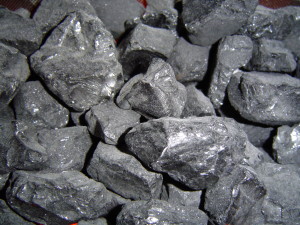By Chad M. Zimlich
Today, in the civil case Power Fuels, LLC v. Federal Mine Safety & Health, a published opinion, the Fourth Circuit denied a petition for review by Power Fuels, LLC (“Power Fuels”) to the Secretary of Labor’s assignment of jurisdiction over Power Fuels’ facility.
Defining What Facilities Fall under the Mine Act
The main issue before the Court was whether or not Power Fuels’ facility fell under the jurisdiction of the Department of Labor’s Mine Safety and Health Administration (“MSHA”) as defined by the Federal Mine Safety and Health Act of 1977 (“Mine Act”), 30 U.S.C. § 802(h)(1)(C), (i). The Mine Act, which covers operators of a “coal or other mine,” including facilities engaged in the “work of preparing coal,” was created by Congress in order to improve working conditions for individuals working in the coal industry. Power Fuels disputed its placement under MSHA’s jurisdiction, arguing instead that it belonged under the jurisdiction of the Occupational Safety and Health Administration (“OSHA”).
Power Fuels and the Use of Coal in Its Facility
The facts of the case were not in dispute. The facility that Power Fuels owns and operates, which is located in Wise County, Virginia, and began operations in 2011, is one that blends coal. The facility supplies coal and biomass to a power plant run by Dominion Virginia Power (“Dominion”), which, in turn, produces electricity for the Virginia Electric and Power Company. In fact, Power Fuels’ facility is located on the adjoining property to Dominion.
Power Fuels mixes an average of eight thousand tons of coal per day for Dominion, or about eighty percent of the fuel Dominion consumes. The amount and specificity of the blending that Power Fuels does is based on orders by Dominion, however, Power Fuels does not “extract, crush size, screen, or wash coal during this process.” Power Fuels then transports the blended coal across the street via truck.
The year after Power Fuels began operation, an MSHA inspector noticed trucks delivering coal to Power Fuels and notified MSHA of the coal-preparation facility. After an MSHA investigator inspected the site and the findings were reviewed by the MSHA and the Department of Labor, the Secretary determined the facility was subject to MSHA’s jurisdiction. Upon further inspections, three citations were issued for violations of MSHA standards. Power Fuels contested these citations arguing a lack of jurisdiction. In November of 2013, an administrative law judge (“ALJ”) for the Federal Mine Safety and Health Review Commission held an evidentiary hearing, and concluded that Power Fuels prepared coal under the definition of the Mine Act and that the MSHA was within its jurisdiction. After the Commission declined discretionary review, Power Fuels appealed to the Fourth Circuit.
The Mine Act’s Broad Scope Protects the Safety and Health of Individuals at All Facilities Working With Coal, Not Just Mines
The Court refuses to adopt Power Fuels’ strict interpretation of the definitions contained in the Mine Act. The definitions are seen to be broadly interpreted in order to serve Congress’ purpose and intent of the Act.
Power Fuels and the Definition of a “Coal Preparation” Facility
The Court first examined the general protections that are afforded to workers via the Occupational Safety and Health Act of 1970 (“OSH Act”). The OSH Act assures safe working conditions, but the implications of its jurisdiction are different than that of the Mine Act. However, where Congress has enacted industry-specific statutes granting an individual agency authority, such as the Mine Act, the OSH Act does not apply. The Secretary of Labor administers both Acts, but, in practice, the more specific Act displaces the general OSH Act. Additionally, the Mine Act is “comprehensive in its coverage” of individuals exposed to the hazards of mining.
After laying out the Mine Act and the Congressional intent behind it, the Court points out in the definition of “coal or other mine” the phrase “includes custom coal preparation facilities.” Coupled with this is the definition of facilities that engage in the “work of preparing the coal” including actions such as “the breaking, crushing, sizing, cleaning, washing, drying, mixing, storing, and loading of bituminous coal, lignite, or anthracite, and such other work of preparing such coal as is usually done by the operator of the coal mine.” The Court intimates that the definition therefore receives the broadest possible interpretation, with any doubts favoring inclusion.
The Court goes on to say that Power Fuels’ contention that it does not do the work normally associated with an operator of a coal mine holds no weight. By pure definition, Power Fuels is covered by the Mine Act. Power Fuels “receives, tests, weighs, samples, mixes, blends, stores, loads, and transports coal,” all which logically lends itself to the definition of a “coal preparation” facility.
The Mine Safety and Health Administration Had Authority
The Court denies the petition for review, and rejects Power Fuels attempt to restrict the Mine Act to only “paradigmatic coal-mine operator[s.]” The Secretary of Labor’s interpretation of the Mine Act was reasonable and Congress’ intent was plain. The MSHA has authority over Power Fuels and other similarly operated facilities.

